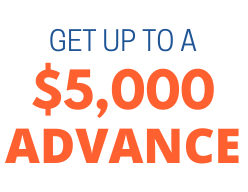Have you fallen behind on rent? It’s a real issue if you don’t have the funds to make a dent in your housing debt. But don’t panic – if you’ve been awarded a structured settlement or annuity, you have a chance to set things right. And even if you don’t have structured settlement payments coming in, you can leverage other tactics to keep you in good standing. Understand that literally millions of folks have been in the same boat and have recovered…you can too.
We’ve put together a list of things you can do right now to help you catch up on rent and mitigate the potential consequences of falling behind.
1. Sell Your Structured Settlement or Annuity Payments
We had to put this one out there because it’s a relatively quick way to pay back rent, while also eliminating any chance of adding further damage to your credit rating. If you’ve won a lawsuit and have received a structured settlement award, you can sell your gradual payments for a lump sum – keep in mind that it’s your money that you don’t have to pay back. If you have an annuity, same deal. Use the lump sum to pay back rent and any fees or interests fees that may have accumulated. Rest assured, paying your debt will inevitably put you back in good standing with your landlord and likely, reduce some stress.

2. Negotiate Terms with Your Landlord
We won’t sugarcoat it. Having the difficult conversation about having fallen behind on your rent isn’t a pleasant conversation. BUT, it has the potential to cool things off when the relationship gets heated. Keeping your landlord in the loop is always a good idea. You may be able to make a partial payment and take care of the remainder later if you have some income coming your way soon. When you can’t pay rent, your landlord may be understanding if you state your case well and set the right expectations.
3. Pay Minimums, Keep Your Credit Intact
These days, you may not have a landlord, but a property management company that handles rent payments, maintenance, community activities, and yes, rent payments. When you first sign on with an apartment, the property management company will often run a credit check. If you fall behind on your rent, the record may be placed on your credit report and consequently, make it difficult to rent a different apartment in the future.
If you’re behind on rent, you might want to start making minimum payments on your credit cards which will allow more funds to be allotted to your rent payment. Moving money around may provide the funds you need to make your rent. If you’ve done all that and still come up short, you can certainly ask for financial help from charitable organizations. Keep reading to learn more.
4. Ask for Help, Get Back on Track
There shouldn’t be any shame in your game if you need to ask for some emergency financial help. There are people and organizations out there that understand that life happens. Organizations like The Salvation Army, Modest Needs, and Catholic Charities can step in, and provide a one-time grant to those who need help. The United Way has also created an entire database of organizations that help people who are down on their luck, called 211.org. It always helps if you’re working and can show that the help you need would be only temporary.
The takeaway here: seek out help when you need it and develop a sound plan for the long-term.

5. Find a Roommate
Two incomes are better than one, especially when it comes to rent. If you can get a roommate quickly, you’ll in turn find reprieve for your rent payment. But first, find out your home’s sublet/roommate policy. The last thing you need is a fine because you’ve broken subletting or rooming policies. If it’s all systems go, then post an ad to Craigslist or other local community website. More times than not, someone reputable will come along and be willing to move in and split the cost with you. (and psst…splitting the cost of utilities is the bees knees too!).
6. File for Chapter 13 Bankruptcy
According to the U.S. Court, Chapter 13 Bankruptcy is “a wage earner’s plan [which enables] individuals with regular income to develop a plan to repay all or part of their debts. Debtors propose a repayment plan to make installments over three to five years. If the debtor’s current monthly income is less than the applicable state median, the plan will be for three years. If the debtor’s current monthly income is greater than the applicable state median, the plan generally must be for five years.”
Filing for bankruptcy keeps late fees and other types of fees from accumulating. You can pay your rent back over time, instead of having to come up with the full amount all at once. Bankruptcy is a way to place everything on hold while you gradually pay back your rent debt. Any individual, even if self-employed or operating an unincorporated business, is eligible for chapter 13 relief as long as the individual’s unsecured debts are less than $394,725 and secured debts are less than $1,184,200.
Whatever you decide to do to get caught up on your rent payment, know that all is not lost. And if you have a structured settlement or annuity at the ready, you can sell some or all of your payments for a lump sum. Getting the money you need in a lump sum payment will for sure put you back on track. If you don’t have payments to sell, rely on other ways to mitigate the situation. With focus and know-how, a late rent payment will seem like small potatoes.






